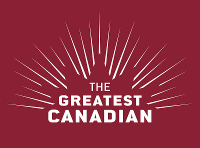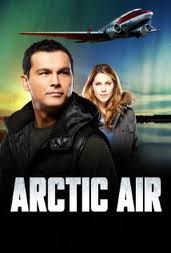Sources
- Queen's University Directory of CBC Television Series (Canada 98 archived listing link via archive.org)
| Canada 98 | |
|---|---|
| Also known as | Canada 99 (1965–66), Canada 100 (1966–67) |
| Genre | Documentary |
| Written by | Charles Israel (Canada 98), Hugh Kemp (Canada 98,99), Scott Young (Canada 98), Clement Perron (Canada 98,99), Don Erickson (Canada 98), Ben Maartman, David Fulton (Canada 100), Max Ferguson (Canada 100) |
| Directed by | Gerald Richardson (Canada 98), Farley Mowat (Canada 100), David Pears (Canada 100) |
| Presented by | J. Frank Willis, Gordie Tapp (interviewer) |
| Narrated by | John Scott (Canada 99), Budd Knapp (Canada 99), J. Frank Willis (Canada 99) |
| Composers | Ricky Hyslop, Ben McPeek (Canada 100) |
| Country of origin | Canada |
| Original language | English |
| No. of seasons | 3 |
| No. of episodes | 9 |
| Production | |
| Executive producer | Thom Benson |
| Producers | Ron Kelly (Canada 98), Michael Rothery (Canada 98,99,100), Daryl Duke (Canada 99), Hugh Kemp (Canada 99), Ron Bashford (Canada 100) |
| Production location | Canada |
| Cinematography | Grahame Woods (Canada 98), Norman Allin (Canada 98), David Carr (Canada 99), Ken Gregg (Canada 100) (camera), Jack V. Long (Canada 99) (cinematography) |
| Original release | |
| Network | CBC |
| Release | November 25, 1964 – April 16, 1967 |
| Related | |
Canada 98 (later Canada 99 then Canada 100 in each successive debut year) is a Canadian centennial documentary television series presented by CBC Television. The series debuted on November 25, 1964, to showcase Canada's nature. the series was hosted by J. Frank Willis featuring nine episodes (despite twelve being produced). Canada 98 was preceded by the documentary film Camera Canada .

Lorne Hyman Greene was a Canadian actor, musician, singer and radio personality. His notable television roles include Ben Cartwright on the Western Bonanza and Commander Adama in the original science-fiction television series Battlestar Galactica and Galactica 1980. He also worked on the Canadian television nature documentary series Lorne Greene's New Wilderness and in television commercials.

Canada: A People's History is a 17-episode, 32-hour documentary television series on the history of Canada. It first aired on CBC Television from October 2000 to November 2001. The production was an unusually large project for the national network, especially during budget cutbacks. The unexpected success of the series actually led to increased government funding for the CBC. It was also an unusual collaboration with the French arm of the network, which traditionally had autonomous production. The full run of the episodes was produced in English and French. The series title in French was Le Canada: Une histoire populaire. In 2004, OMNI.1 and OMNI.2 began airing multicultural versions, in Chinese, Greek, Hindi, Italian, Polish, Portuguese, and Russian.

The Gemini Awards were awards given by the Academy of Canadian Cinema & Television between 1986–2011 to recognize the achievements of Canada's English-language television industry. The Gemini Awards are analogous to the Emmy Awards given in the United States and the BAFTA Television Awards in the United Kingdom. First held in 1986 to replace the ACTRA Award, the ceremony celebrated Canadian television productions with awards in 87 categories, along with other special awards such as lifetime achievement awards. The Academy had previously presented the one-off Bijou Awards in 1981, inclusive of some television productions.

The Greatest Canadian is a 2004 television series consisting of 13 episodes produced by the Canadian Broadcasting Corporation (CBC) to identify one greatest Canadian of all time, according to those who watched and participated in the program.
This Hour Has Seven Days was a CBC Television news magazine that ran from 1964 to 1966, offering viewers in-depth analysis of the major social and political stories of the previous week.
The Nature of Things is a Canadian television series of documentary programs. It debuted on CBC Television on 6 November 1960. Many of the programs document nature and the effect that humans have on it, although the program's overall scope includes documentaries on any aspect of science. The program "was one of the first mainstream programs to present scientific evidence on a number of environmental issues, including nuclear power and genetic engineering".

George Mark Paul Stroumboulopoulos is a Canadian media personality, television host and podcaster. He is one of Canada's most popular broadcasters and best known as formerly being a VJ for the Canadian music television channel MuchMusic. He was also the host and co-executive producer of the CBC Television talk show George Stroumboulopoulos Tonight from 2005 to 2014. From 2014 to 2016, Stroumboulopoulos worked for Rogers Media, anchoring Hockey Night in Canada and the NHL on Rogers. From 2009 to 2023, he was a radio host on CBC Music. Most recently, he joined Apple Music Radio as host of a Monday to Thursday live show.
Life and Times was a series of biographical documentary films broadcast by CBC Television, CBC Country Canada and CBC Newsworld. The program premiered in 1996, and ran until 2007.
Undercurrents was a Canadian news magazine television program that was hosted by Wendy Mesley. It focused on media, marketing and technology.
The Passionate Eye is a Canadian documentary television series—and online playlist—that showcases documentary programming from around the world focusing on topics of news, current affairs, politics, and social issues. Airing on CBC News Network, it has been on-air since 1992, and has had a website since 2002.
Coming Up Rosie was a Canadian children's sitcom TV series on CBC Television, aired for three seasons from 1975–1978.
Absolutely Canadian is a Canadian documentary television series. Formerly a weekday news series on CBC Newsworld, it currently airs as a weekly series on CBC Television.
Rough Cuts was a Canadian television series, which aired on CBC Newsworld. Launched in 1994, the series presents documentary films by new and independent journalists and producers. One of its hosts was Michaëlle Jean, who subsequently served as Governor General of Canada from 2005 to 2010.
CBC News Magazine was a weekly Canadian news television series which debuted on CBC Television on September 8, 1952. The series presented the week's international news highlights and documentaries from CBC correspondents around the world. It ran until 1981 when it was cancelled in order to make way for The Journal.
The following is a list of events affecting Canadian television in 1966. Events listed include television show debuts, finales, cancellations, and channel launches, closures and rebrandings.
The following is a list of events affecting Canadian television in 1965. Events listed include television show debuts, finales, cancellations, and channel launches, closures and rebrandings.
The following is a list of events affecting Canadian television in 1963. Events listed include television show debuts, finales, cancellations, and channel launches, closures and rebrandings.
The following is a list of events affecting Canadian television in 1961. Events listed include television show debuts, finales, cancellations, and channel launches.

Arctic Air is a Canadian drama television series that began airing on CBC Television on January 10, 2012. The series was canceled on March 17, 2014, due to government budgetary cuts.
Hot Docs at Home is a Canadian television programming block, which premiered April 16, 2020 on CBC Television. Introduced as a special series during the COVID-19 pandemic in Canada, the series aired several feature documentary films that had been scheduled to premiere at the 2020 Hot Docs Canadian International Documentary Festival before its postponement. The films aired on CBC Television at 8 p.m. EST on Thursdays and on the CBC's Documentary Channel later the same evening, and were made available for streaming on the CBC Gem platform.